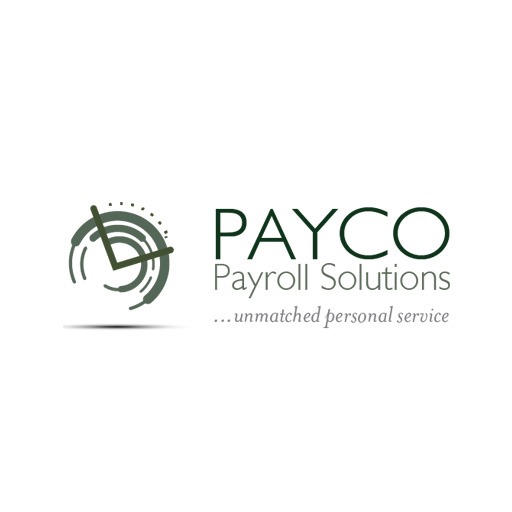Keeping up with payroll compliance is essential for any business. Failure to adhere to payroll regulations can result in significant penalties that can hurt your company financially and damage its reputation. Understanding the key requirements and implementing effective strategies can help ensure that your business remains compliant and avoids costly mistakes.
One of the biggest challenges in payroll compliance is accurately tracking employee time and maintaining proper records. Errors in timekeeping can lead to incorrect pay, unhappy employees, and potential legal issues. By adopting best practices for timekeeping and record-keeping, you can safeguard against these problems and ensure fair and accurate compensation for your employees.
Regular payroll audits and reviews are also critical in maintaining compliance. These audits help identify and correct errors before they become significant issues, ensuring that your payroll processes are running smoothly and accurately. Additionally, handling payroll data securely is vital to protect sensitive employee information and comply with privacy regulations.
Taking proactive steps to address these areas can help your business avoid penalties and operate more efficiently. By focusing on payroll compliance, you can create a more stable and trustworthy environment for both your employees and your organization.
Understanding Key Payroll Compliance Requirements
Meeting payroll compliance requirements is essential for any business. Payroll compliance involves adhering to various laws and regulations, including federal, state, and local tax laws. These laws dictate how businesses must handle employee wages, tax withholdings, and reporting. Failing to comply with these regulations can result in hefty fines, penalties, and legal issues. It’s important to stay updated on any changes to these laws to maintain compliance.
To begin with, make sure you’re accurately calculating withholdings for national taxes such as Social Security and Medicare. Each employee’s income should be correctly reported and taxed according to the current federal guidelines. State taxes can vary widely, so it is important to know the specific requirements for the state your business operates in. Additionally, some local jurisdictions have their own tax laws that must be followed.
Regular training and updates are crucial to stay compliant with changing tax laws. Investing in good payroll software that automatically updates tax codes and helps you manage filings can save a lot of headaches. Keeping proper documentation and detailed records of all transactions will also help ensure compliance and make it easier to resolve any issues that arise.
Strategies for Accurate Timekeeping and Record-Keeping
Accurate timekeeping and record-keeping are crucial for ensuring that employees are paid correctly for the hours they work. As a business, it’s your responsibility to track work hours accurately and maintain detailed records. This includes keeping track of regular hours, overtime, and any time off such as vacation or sick leave.
Using manual methods like paper timesheets can lead to errors and is often time-consuming. Instead, consider using automated timekeeping systems. These systems can include digital clock-in and clock-out features that record an employee’s work hours in real-time. Some advanced systems even use biometric data to verify the identity of the person clocking in or out, reducing the risk of time fraud.
Another important aspect of accurate record-keeping is maintaining and storing records properly. It’s not just about tracking hours, but also keeping all payroll-related documents such as pay stubs, tax forms, and benefits information. These records should be organized and stored in a secure manner, and accessible for audits or reviews.
Creating a clear timekeeping and record-keeping policy helps ensure all employees understand the process and their responsibilities. Regular checks and audits of these records can help identify discrepancies early, allowing you to correct them before they become major issues. By implementing these strategies, you can maintain accurate payroll records and ensure smooth and error-free payroll processing.
Implementing Regular Payroll Audits and Reviews
Regular payroll audits are essential for identifying and correcting errors before they become major issues. A payroll audit involves examining payroll records and processes to ensure that everything is accurate and compliant with laws and regulations. These audits can catch discrepancies in employee compensation, benefits, and tax withholdings.
To start, schedule periodic audits, either quarterly or annually, depending on the size and complexity of your business. During these audits, compare your payroll records against actual payments made to employees. Check for inconsistencies in work hours, overtime calculations, and deductions. Verifying that all tax withholdings and filings are accurate and up-to-date is also crucial during an audit.
Automated payroll systems can facilitate the audit process by generating detailed reports and flagging potential issues. In addition to regularly scheduled audits, consider conducting random audits to catch issues that are less predictable. Training your payroll team to understand and perform these audits can further enhance your payroll accuracy and compliance. By implementing regular payroll audits, you can maintain a more reliable and efficient payroll system.
Ensuring Secure Handling of Payroll Data and Employee Information
Handling payroll data securely is vital to protecting your employees’ personal information and maintaining their trust. Payroll data includes sensitive details such as social security numbers, bank account details, and addresses. A data breach can lead to identity theft and financial loss for your employees, along with legal troubles for your business.
Start by using payroll software that provides robust encryption methods to protect data both in transit and at rest. Encryption scrambles the data, making it unreadable to unauthorized users. Regularly update your payroll software to protect against new security threats and vulnerabilities.
In addition to software safeguards, implement strict access controls. Only authorized personnel should have access to payroll data. Use strong, unique passwords and change them regularly to further protect the information. Conducting regular security training for your staff can also help in preventing unintentional data breaches.
Storing physical records securely is another important part of data handling. Keep any paper documents in locked cabinets and restrict access to those who need it for their job roles. By taking these steps, you can ensure that payroll data and employee information remain secure and confidential.
Conclusion
Effectively managing payroll involves understanding key compliance requirements, maintaining accurate time and record-keeping, regularly auditing your payroll processes, and ensuring the secure handling of sensitive information. Each of these steps is essential for running a smooth and efficient payroll system that keeps your business compliant and your employees satisfied.
By addressing these aspects thoughtfully, you can minimize errors, save time, and reduce the risks associated with payroll management. Implementing automated systems and regular audits not only improves accuracy but also frees up resources that can be better spent on core business activities.
If you’re ready to streamline your payroll processes and ensure compliance and security, consider partnering with PayCo Payroll Solutions. Our comprehensive payroll services are tailored to meet the unique needs of your business. Contact us today to see how we can support your payroll needs and help your business thrive.





